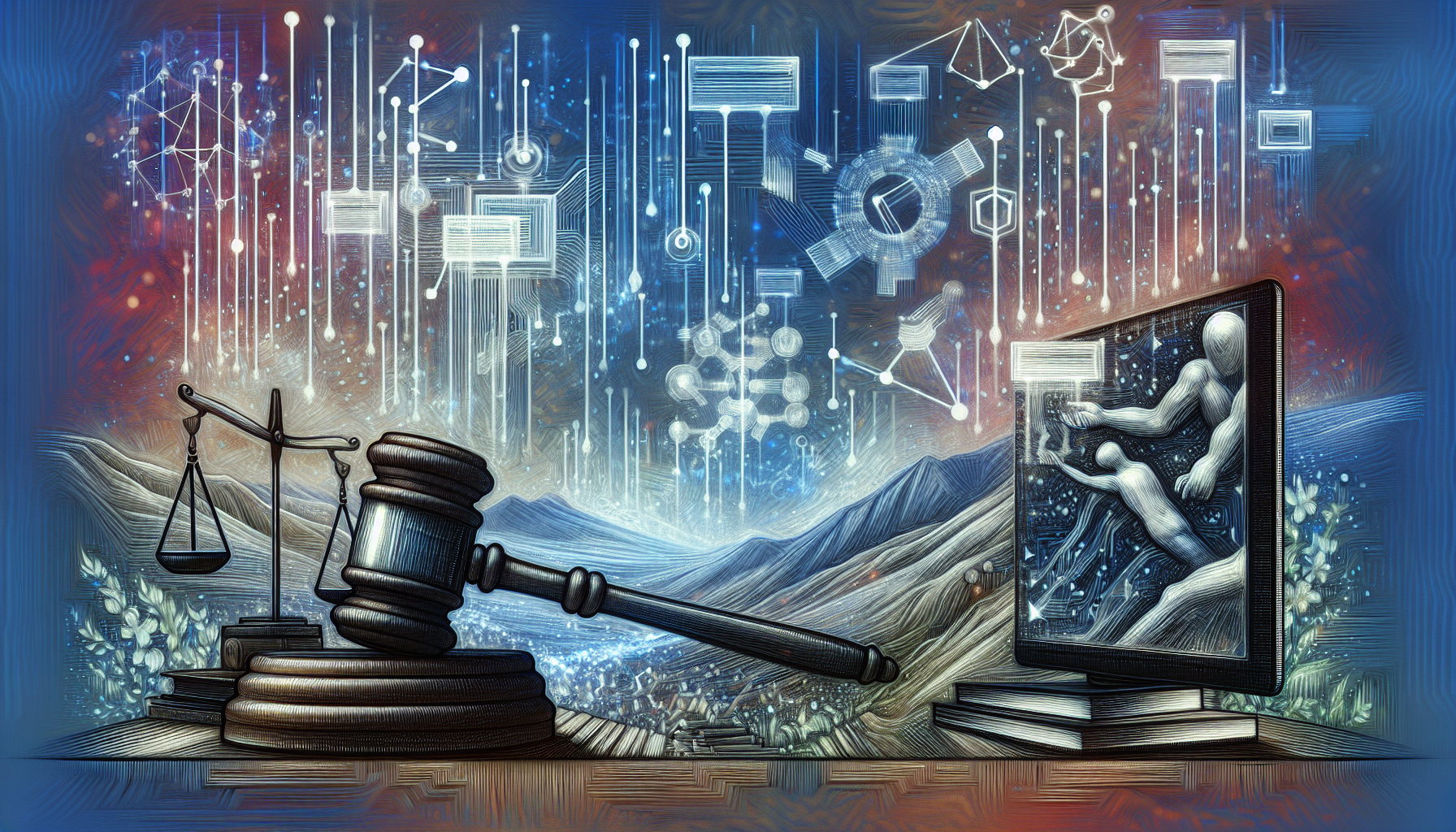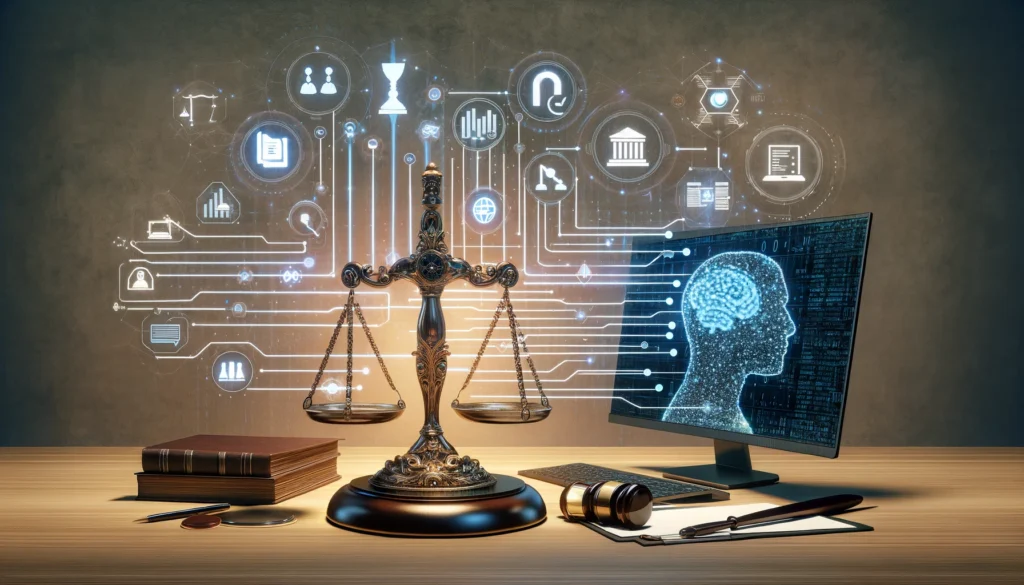
Setting the Stage for Paralegal Efficiency
Incorporating technology into the workflow of a paralegal can significantly streamline operations, especially in areas like corporate risk management documentation. Paralegals are the backbones of legal research and documentation; therefore, enhancing their productivity with advanced tools is crucial. With innovations like ChatGPT, the documentation process can be optimized, leading to higher efficiency and accuracy in handling corporate risks. Transitioning from traditional practices to tech-driven solutions marks the beginning of a new era of enhanced paralegal support.
Understanding the Power of Large Language Models (LLMs)
To comprehend how ChatGPT can be an asset, it’s imperative to understand what it is and how it functions.
What is ChatGPT and How It Works
ChatGPT is an advanced language model developed by OpenAI. Capable of understanding and generating human-like text, it utilizes machine learning algorithms to predict and construct sentences based on the context of the input it receives. This allows it to perform a multitude of tasks, from answering queries to creating comprehensive documents.
Overview of LLM Capabilities in Legal Contexts
In the legal domain, LLMs like ChatGPT can offer vast improvements in efficiency:
- Document Automation: Drafting legal documents and contracts swiftly and accurately.
- Research & Analysis: Quick access to extensive databases for research purposes.
- Compliance and Risk Management: Facilitating precise assessments and reporting.
Understanding these capabilities sets the stage for leveraging ChatGPT to streamline traditional tasks further.
Streamlining Traditional Tasks with ChatGPT
Harnessing ChatGPT can significantly reduce the time paralegals spend on routine tasks, allowing them to focus on more complex challenges.
Initial Research and Data Gathering
Beginning with research, ChatGPT can sift through vast volumes of data, identifying pertinent information that may be otherwise time-consuming to fetch manually. For example, prompting ChatGPT with, “Summarize recent corporate risk management cases in the past five years,” can yield quick and actionable insights.
Drafting Documentation Efficiently
Once the research is in place, the next critical task is drafting documentation. ChatGPT can assist in drafting various forms of risk management documents with high precision. By providing specific inputs like, “Generate a risk management plan for a technology firm,” paralegals can obtain structured drafts which they can then tailor to specific requirements.
Automating Routine Correspondence
Routine tasks, such as email correspondence related to risk management updates, can also be automated. For instance, ChatGPT can generate periodic updates and cursory invitations for meetings, strengthening the communication loop without demanding manual effort.
With these initial improvements in traditional tasks, attention can then be turned to more advanced techniques.
Advanced Techniques for Risk Management Documentation
Elevating above routine tasks, ChatGPT can contribute towards detailed and precise risk management documentation.
Utilizing Key Prompts for In-depth Risk Analysis
Prompts like “Analyze potential risks in expanding our operations to Asia” encourage ChatGPT to provide a structured analysis of regional risks, regulatory concerns, and market challenges, making it easier to draft comprehensive risk assessments.
Generating Risk Management Reports with Precision
ChatGPT’s ability to generate detailed reports tailored to specific needs further enhances its utility. Paralegals can task it with “Create a quarterly risk management report highlighting major incidents and mitigation strategies,” ensuring they receive well-formatted and detailed content ready for review.
Ensuring Compliance and Regulatory Alignment
Ensuring that corporate practices adhere to compliance and regulatory standards is paramount. ChatGPT can be utilized to cross-check and validate documentation against existing regulations. A prompt such as “Verify this document’s compliance with GDPR regulations” allows paralegals to gain clarity and assurance regarding compliance.
With advanced techniques, the collaboration within risk management teams can also see significant improvements.
Enhancing Collaboration and Communication
Effective collaboration is instrumental for productive risk management practices, and ChatGPT can enhance synergy within teams.
Facilitating Team Synergy with ChatGPT
By centralizing data and analyses, ChatGPT can act as a shared resource hub. Shared prompts and generated reports can streamline inter-department communications, ensuring everyone is on the same page.
Drafting Minutes and Summaries of Risk Management Meetings
After meetings, paralegals can prompt ChatGPT with “Draft minutes of today’s risk management meeting,” to receive detailed summaries. This helps in maintaining accurate records and ensures action points are tracked effectively.
To seamlessly integrate these enhancements, it’s essential to look into how ChatGPT can fit into existing legal tech ecosystems.
Integrating ChatGPT into Legal Tech Ecosystems
For ChatGPT to be truly effective, it needs to integrate with the current array of legal tools and software. Solutions like document management systems (DMS), customer relationship management (CRM) tools, and compliance management software can be synchronized with ChatGPT using APIs and custom integrations, ensuring a seamless workflow.
Maximizing Outcomes While Minimizing Risks
To fully leverage ChatGPT, it’s crucial to address confidentiality and data security.
Maintaining Confidentiality and Data Security
Implementing robust data encryption and confidentiality protocols is essential to protect sensitive information. Additionally, regular audits and adherence to best practices can mitigate potential risks.
Continuous Learning and Adaptation
ChatGPT thrives on continuous learning. Regular updates and training on specific legal contexts ensure that it remains a valuable asset to paralegals and legal teams.
Looking Ahead: The Future of Paralegal Work with AI
The integration of AI like ChatGPT foreshadows a future where paralegals can devote more time to critical thinking and strategic tasks. Automation and AI assistance not only enhance efficiency but also open new avenues for conducting sophisticated legal work, ultimately transforming the landscape of legal support services.


